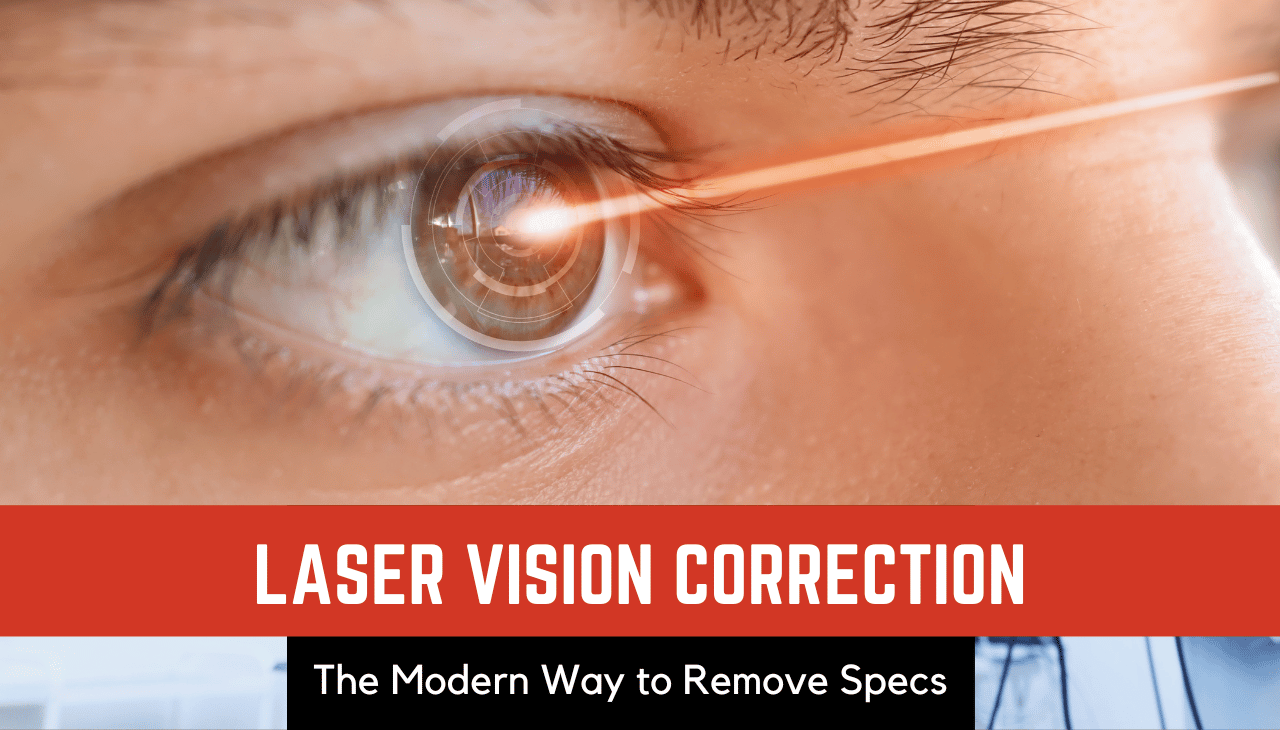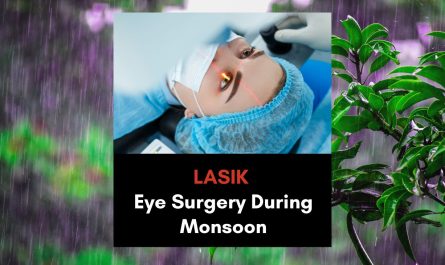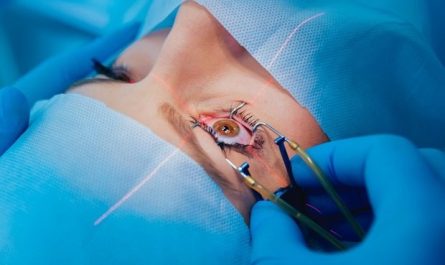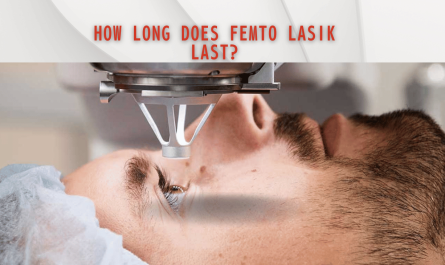Introduction
For many people, wearing glasses or contact lenses can feel like a daily chore — from foggy lenses to misplaced frames. But what if you could enjoy clear vision without relying on specs at all? That’s where laser vision correction comes in. This modern, safe, and precise procedure has transformed millions of lives by offering freedom from glasses and contact lenses.
In this blog, we’ll explore how laser vision correction works, who can benefit from it, what the procedure involves, and how expert eye care from Laxmi Eye Hospital ensures safe and lasting results.
Understanding the Basics

Laser Vision Correction (LVC) is an advanced surgical method that reshapes the cornea — the transparent front part of the eye — to improve how light focuses on the retina. This correction enhances visual clarity, helping eliminate dependency on spectacles or contact lenses.
There are several types of laser vision correction techniques, including:
- LASIK (Laser-Assisted in Situ Keratomileusis) – The most popular and painless technique with quick recovery.
- Contoura Vision LASIK – A topography-guided laser treatment offering personalized correction for each eye.
- ICL (Implantable Collamer Lens) and IPCL (Implantable Phakic Contact Lens) – For patients unsuitable for LASIK due to thin corneas or high power.
Laser correction addresses myopia (nearsightedness), hypermetropia (farsightedness), and astigmatism. It’s a long-term solution for those seeking visual independence.
Causes and Risk Factors for Vision Problems
Vision problems such as refractive errors often occur due to:
- Genetics: Family history of myopia or hyperopia increases risk.
- Prolonged screen time: Extended use of digital devices strains the eyes.
- Lifestyle factors: Lack of outdoor activities and poor posture can worsen eye strain.
- Aging: The lens loses flexibility over time, leading to presbyopia (difficulty focusing on close objects).
While these factors can’t always be prevented, modern laser vision correction offers an effective solution to restore visual clarity and reduce long-term dependence on corrective lenses.
Signs and Symptoms
You might be a candidate for laser vision correction if you experience:
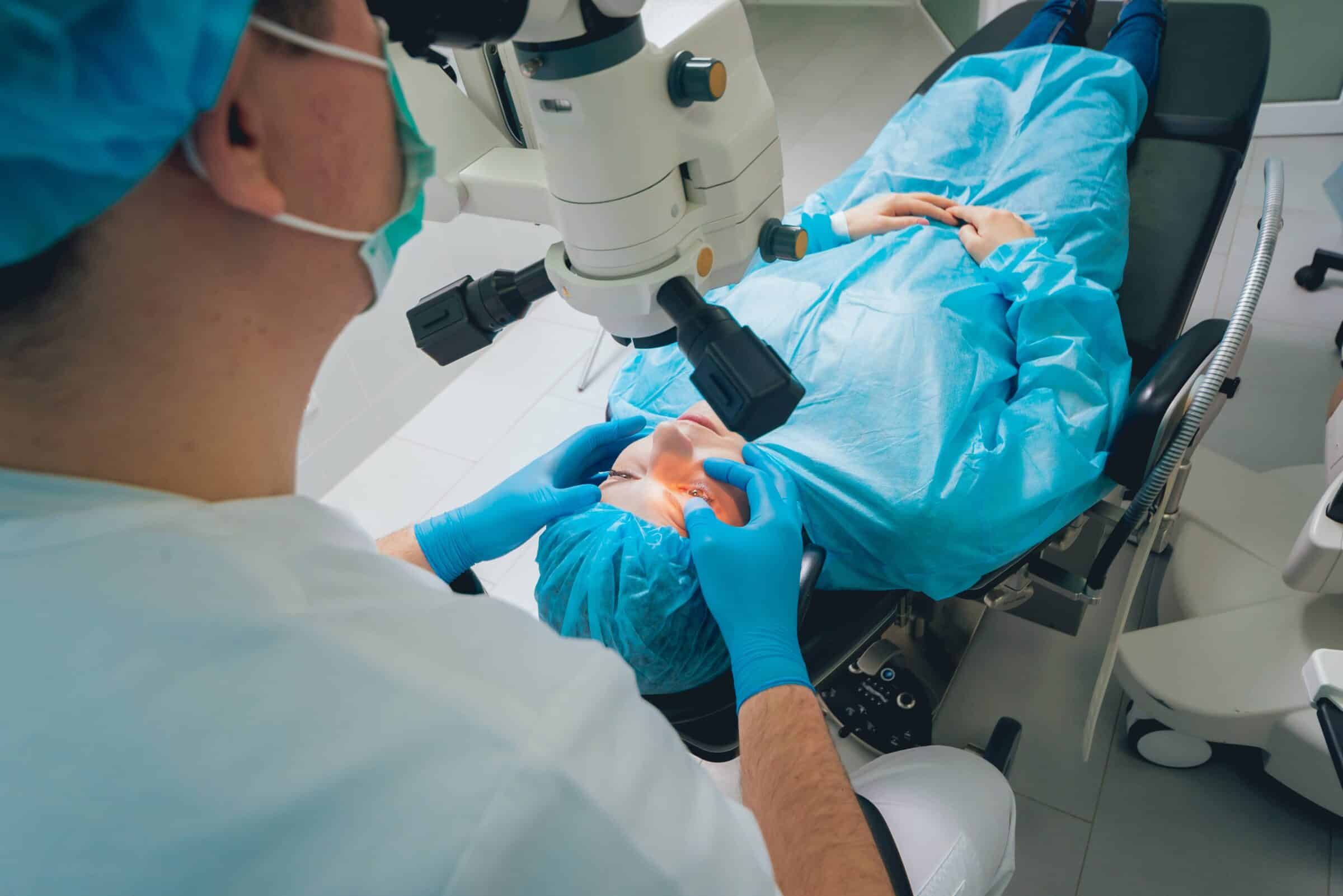
- Blurred or distorted vision when reading or driving
- Frequent headaches from eye strain
- Difficulty focusing on near or distant objects
- Tired eyes after extended screen use
If these symptoms persist even with corrective glasses or contact lenses, it’s time to consult an ophthalmologist for an eye evaluation. Early detection and correction can prevent further vision deterioration.
Diagnosis and Tests
Before proceeding with laser vision correction, an eye specialist performs several diagnostic tests to determine suitability:
- Corneal Thickness Test (Pachymetry): Ensures the cornea is thick enough for safe reshaping.
- Topography Scan: Maps the corneal surface for precise laser guidance.
- Refraction Test: Measures the exact power of your eyes.
- Dilated Eye Exam: Checks for any underlying retinal or optic nerve issues.
These tests ensure the procedure is personalized and safe for each individual. Regular eye check-ups are crucial, as they allow early detection of conditions that could affect eligibility or post-surgery recovery.
Treatment Options: How Laser Vision Correction Works
Laser vision correction is an outpatient procedure that typically takes 10–15 minutes per eye and is completely painless. Here’s how it works:
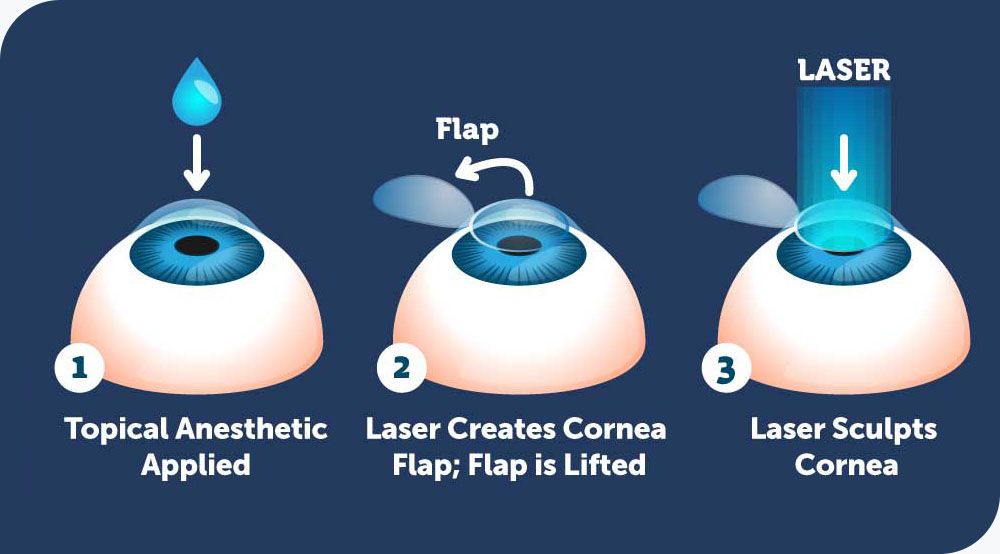
- Preparation: Numbing eye drops are applied; no injections or stitches are required.
- Corneal Reshaping: A laser precisely reshapes the cornea to correct the refractive error.
- Recovery: Patients can return home the same day, with most noticing clearer vision within 24–48 hours.
Modern Techniques Used
- Bladeless LASIK: Uses a femtosecond laser for ultra-precise corneal flap creation.
- Contoura Vision LASIK: Customizes the treatment to your eye’s unique curvature for better clarity.
- ICL/IPCL Implants: Ideal for those who can’t undergo LASIK due to thin corneas.
Aftercare and Recovery
- Minimal downtime — most patients resume daily activities within 2–3 days.
- Avoid rubbing your eyes or swimming for a few weeks.
- Use prescribed eye drops and attend follow-up visits for proper healing.
Lifestyle Tips & Prevention
Even after laser vision correction, maintaining good eye health is essential. Follow these expert tips:
- Take regular screen breaks using the 20-20-20 rule (every 20 minutes, look at something 20 feet away for 20 seconds).
- Eat foods rich in vitamin A, C, and omega-3 fatty acids.
- Wear UV-protected sunglasses outdoors.
- Stay hydrated and get adequate sleep.
- Schedule regular eye check-ups to monitor long-term visual health.
Expert Insights
“Laser Vision Correction has evolved tremendously over the years. With advanced technologies like Contoura Vision and Bladeless LASIK, patients now experience faster recovery and sharper visual outcomes,” says Senior Ophthalmologist at Laxmi Eye Hospital.
“At Laxmi Eye Institute, our goal is to provide clear, comfortable, and confident vision for every patient.”
Modern technology combined with experienced ophthalmologists ensures precise results and unmatched patient safety.
Patient Awareness & Misconceptions
Myth 1: Laser eye surgery is painful.
Fact: The procedure is painless, as numbing drops are used.
Myth 2: LASIK is risky.
Fact: It’s one of the safest elective surgeries with a success rate above 98%.
Myth 3: The effect wears off over time.
Fact: Results are usually permanent, though natural aging may cause minor vision changes later.
Always rely on an eye specialist’s advice rather than online information when making decisions about your vision.
Consultation Information: About Laxmi Eye Hospital
Laxmi Eye Hospital is one of the largest and most trusted eye hospital chains in Mumbai, with over 30 years of excellence in eye care. Known for its experienced ophthalmologists, transparent approach, and advanced diagnostic facilities, it offers world-class treatment in Panvel, Kharghar, Kamothe, and Dombivli.
Specializations include:
- Specs Removal / LASIK (Bladeless LASIK, ICL, IPCL, Contoura Vision LASIK)
- Cataract, Glaucoma, Diabetic Eye, Cornea Clinic, Retina Treatment, Pediatric Ophthalmology
Clinic Locations:
📍 Dombivli: SS Business Park, Gharda Circle, Dombivli East, Mumbai
📍 Kharghar: Anant CHS, Plot 31, Sector 04, Kharghar, Navi Mumbai
📍 Panvel: Mulla Hamid Rd, Old Panvel, Navi Mumbai
📍 Kamothe: Near ICICI Bank, Pratik Gardens, Sector 34, Kamothe, Navi Mumbai
Book your consultation today for personalized eye care and freedom from spectacles.
FAQs
1. Is laser vision correction painful?
No. The eyes are numbed before the procedure, ensuring complete comfort.
2. Who is eligible for LASIK or Contoura Vision?
Adults aged 18+ with stable eye power and healthy corneas are ideal candidates.
3. How long does the effect last?
Results are generally permanent, with over 98% patient satisfaction.
4. Can LASIK correct all vision problems?
It corrects most refractive errors like myopia, hypermetropia, and astigmatism.
5. How soon can I resume work after surgery?
Most patients return to normal activities within 1–2 days.
Conclusion
Laser Vision Correction is more than just a medical procedure — it’s a lifestyle upgrade. With modern technology, expert surgeons, and quick recovery, it offers a safe and permanent way to enjoy clear vision without glasses.
If you’re considering freedom from specs, consult the experts at Laxmi Eye Hospital today — where innovation meets compassionate eye care.

